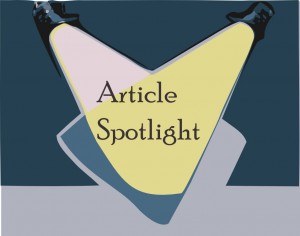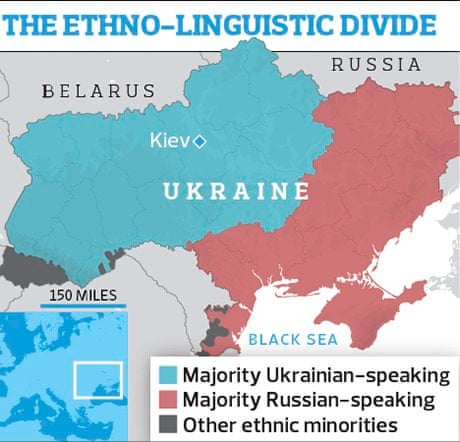 This edition of Article Spotlights, reflecting on a number of stories that appeared in News Bites in May and June, brings articles from the SEN Archives focusing on the possibilities of a European collective identity, nationalism in Greece, nationalist ceremony in China, and the ongoing Russo-Ukrainian War.
This edition of Article Spotlights, reflecting on a number of stories that appeared in News Bites in May and June, brings articles from the SEN Archives focusing on the possibilities of a European collective identity, nationalism in Greece, nationalist ceremony in China, and the ongoing Russo-Ukrainian War.
George Yiangou’s paper asks the question: ‘is a common European identity really a distinct possibility?’
George Yiangou, Analysing the Prospects of Forging an Overarching European Collective Identity, Volume 1, Issue 2, 2001, pp. 37-49.
This article reviews the prospect of forging an pan-European identity through the consideration of the rival approaches of Ernest Gellner and Anthony D. Smith. It also cites Switzerland as an example of a successful multicultural state and investigates the extent to which the Swiss experience can be compared with the emergence of a European identity.
Dimitrios Gkintidis’s essay examines the role of nationalist display in the elaboration of a narrative of ‘Powerful Greece’, and its relation to the dilemmas faced by Greek nationalism since the economic breakdown of the country that began in 2010.
Dimitrios Gkintidis, Towards a Powerful Nation: Neoliberalism and Greek Nationalism in Thrace at the Turn of the Twenty-First Century, Volume 14, Issue 3, 2014, pp. 452-472.
This article retraces the permutations of Greek nationalism from the early 1990s up to the late 2000s using the example of the World Thracian Congresses – localized public events of ostentatious nationalist display that were organized from the early 1990s in the Greek border region of Thrace. New discourses on a ‘Powerful Greece’ and flexible geopolitics reflect the particular ways in which Greek nationalism and neoliberalism were configured among local and national elites. By understanding the ways in which aspirations of national grandeur, rationality, and accountability have been constructed for the last twenty years, we can begin to develop a deeper insight into the dilemmas of Greek nationalism during the economic crisis of the early 2010s.
Erika Kuever’s article deals with the 60th Anniversary National Day Parade in China, and its significance as a form of ‘visual poetry’.
Erika Kuever, Performance, Spectacle, and Visual Poetry in the Sixtieth Anniversary National Day Parade in the People’s Republic of China, Volume 12, Issue 1, 2012, pp. 6-18.
The sixtieth anniversary of the founding of the People’s Republic of China on 1 October 2009 was marked with a massive parade in the heart of Beijing viewed on hundreds of millions of television screens across the nation. English-language media coverage focused primarily on what it saw as the event’s explicit message: the Communist Party’s celebration of the nation’s military might and continued economic growth, and its origins in a coherent and uniquely Chinese ideology. Such coverage largely reflected international fears of China and thus misread the parade’s import and impact on its domestic audience. I argue that the National Day events are better understood as a form of visual poetry that relied on performance to emotionally conflate party, nation, and state. Both the speeches of party leaders and the scripted remarks of state media commentators relied on language and ideas that the Chinese public has heard numerous times. The visual elements of the parade, in contrast, were unprecedented in both scale and spectacle. Hundreds of thousands took part in displays of collective harmony, unified patriotic sentiment, and ethnic unity. The distinctive style and rhythm of the parade depicted a vision of nationhood without the ethnic fractures, labour unrest, and massive inequalities that constitute the greatest threat to the power of the party-state as it embarks on its seventh decade of continuous rule.
Mykola Riabchuk’s piece argues that the ongoing Russian-Ukrainian conflict demonstrates that the most important cleavage in Ukrainian politics and society is between ‘European’ and ‘East Slavonic’ narratives of Ukrainian identity.
Mykola Riabchuk, ‘Two Ukraines’ Reconsidered: The End of Ukrainian Ambivalence?, Volume 15, Issue 1, 2015, pp. 138-156.
The 2014 Russo-Ukrainian war, euphemistically called the ‘Ukraine crisis’, has largely confirmed, on certain accounts, a dramatic split of the country and people’s loyalties between the proverbial ‘East’ and ‘West’, between the ‘Eurasian’ and ‘European’ ways of development epitomized by Russia and the European Union. By other accounts, however, it has proved that the Ukrainian nation is much more united than many experts and policymakers expected, and that the public support for the Russian invasion, beyond the occupied regions of Donbas and Crimea, is close to nil. This article does not deny that Ukraine is divided in many respects but argues that the main – and indeed the only important – divide is not between ethnic Russians and Ukrainians, or Russophones and Ukrainophones, or the ‘East’ and the ‘West’. The main fault line is ideological – between two different types of Ukrainian identity: non/anti-Soviet and post/neo-Soviet, ‘European’ and ‘East Slavonic’. All other factors, such as ethnicity, language, region, income, education, or age, correlate to a different degree with the main one. However divisive those factors might be, the external threat to the nation makes them largely irrelevant, bringing instead to the fore the crucial issue of values epitomized in two different types of Ukrainian identity.
Finally, Anne Koumandaraki’s essay focuses on the role of state policies in defining Greek national identity.
Anne Koumandaraki, The Evolution of Greek National Identity, Volume 2, Issue 2, 2002, pp. 39-53.
This paper is an attempt to bring together different and – at times – conflicting arguments on Greek national identity. More specifically, it focuses on the contribution of the Greek state to the process of national homogenisation in the country. The main argument is the process, which lasted almost half the twentieth century, was promoted by specific governmental policies which defined in a vigorous way the borders of the Greek nation. The argument follows Ernest Gellner’s (1983) argument that nationalism is a modernizing force emerging out of the dissolution traditional communities and individuals’ attempts to find new marks of social reference.
Article Spotlights compiled by Dr Shane Nagle

![Israel-Palestine: Is it even relevant anymore? Pro-Palestine demonstrators wearing Netanyahu masks protest in front of the Washington Convention Center [AP]](http://www.aljazeera.com/mritems/imagecache/mbdxxlarge/mritems/Images/2015/3/2/e44473554507412789a79222fd2e8de8_18.jpg)


